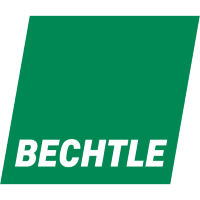|
**Haftungsausschluss: Der Text wurde mit Hilfe einer KI zusammengefasst und übersetzt. Für Aussagen aus dem Originaltext wird keine Haftung übernommen!**
Okay, here’s a 600-word summary and translation of the Simply Wall St article about Bechtle:
**Summary (600 words)**
This article analyzes the valuation of Bechtle, a German IT services and solutions provider, utilizing three key valuation approaches to determine if the stock is currently overvalued or undervalued. The core argument is that while Bechtle is experiencing growth and expansion, the current share price may be inflated based on its financials.
**Valuation Methods:**
1. **Discounted Cash Flow (DCF) Analysis:** This method projects Bechtle’s future free cash flows and discounts them back to present value. The analysis reveals an estimated intrinsic value of €26.96 per share, significantly higher than the current share price, suggesting the company is overvalued at 48.7% based on these assumptions. The model’s projections show a slight decline in free cash flow growth over the next five years, culminating in a stabilized cash flow of approximately €190 million by 2035.
2. **Price-to-Earnings (PE) Ratio:** The article compares Bechtle’s PE ratio (23.5x) to the industry average (22.0x) and a “Fair Ratio” calculated by Simply Wall St (27.7x). This Fair Ratio incorporates factors like earnings growth, profit margins, market capitalization, and the company’s specific industry characteristics. The Fair Ratio indicates Bechtle is undervalued, trading at a discount to its fair multiple.
3. **Narratives:** The article introduces the concept of “Narratives” – personalized investment stories combining an investor’s outlook for the company with financial forecasts. Multiple narratives emerge for Bechtle, driven by factors like international expansion and investments in AI. One optimistic narrative supports a fair value of €51.0 per share, while a more cautious narrative suggests a fair value closer to €33.9. This highlights the subjective element of valuation.
**Key Findings & Concerns:**
* **Momentum & Expansion:** Bechtle is experiencing positive momentum due to digital transformation deals and expansion into new European markets.
* **Overvaluation Risk:** Despite this growth, the DCF analysis suggests the stock is overvalued.
* **Fair Value Range:** The analysis suggests a fair value range for Bechtle, reflecting differing viewpoints on the company’s future prospects.
* **Importance of Context:** The article stresses that valuation is not simply about numbers but is heavily influenced by the investor’s assumptions and outlook.
**Conclusion:**
Ultimately, the article presents a nuanced view of Bechtle’s valuation. While the company demonstrates growth potential, the DCF analysis reveals a significant overvaluation. However, considering the various narratives and the calculated Fair Ratio, there’s a strong argument that the stock is undervalued, offering investors a potential opportunity.
---
**German Translation (approximately 600 words)**
**Zusammenfassung: Bewertung von Bechtle**
Dieser Artikel analysiert die Bewertung von Bechtle, einem deutschen IT-Dienstleister und -Lösungsexperten, unter Verwendung von drei Schlüsselmethoden, um festzustellen, ob der Aktienkurs derzeit über- oder unterbewertet ist. Das zentrale Argument ist, dass Bechtle zwar Wachstum und Expansion erlebt, aber der aktuelle Aktienkurs aufgrund seiner Finanzdaten möglicherweise überhöht ist.
**Bewertungsansätze:**
1. **Discounted Cash Flow (DCF) Analyse:** Diese Methode prognostiziert Bechtles zukünftige Free Cash Flows und diskontiert diese auf den heutigen Wert. Die Analyse ergibt einen geschätzten intrinsischen Wert von 26,96 € pro Aktie, deutlich höher als der aktuelle Aktienkurs, was darauf hindeutet, dass das Unternehmen aufgrund dieser Annahmen überbewertet ist (um 48,7 %). Das Modell prognostiziert einen leichten Rückgang des Free Cash Flow Wachstums über die nächsten fünf Jahre, der sich mit einem stabilisierten Cashflow von rund 190 Mio. € im Jahr 2035 abschließt.
2. **Price-to-Earnings (PE) Verhältnis:** Der Artikel vergleicht Bechtles PE-Verhältnis (23,5x) mit dem Branchenmittelwert (22,0x) und einem von Simply Wall St berechneten “Fair Ratio” (27,7x). Dieses Fair Ratio berücksichtigt Faktoren wie Gewinnwachstum, Gewinnmargen, Stabilität und wahrgenommene Risiken. Das Fair Ratio deutet darauf hin, dass Bechtle unterbewertet ist und mit einem Rabatt auf das faire Multiple gehandelt wird.
3. **Narrativen:** Der Artikel führt das Konzept der “Narrativen” ein – personalisierte Anlagegeschichten, die eine Investitionsaussicht auf das Unternehmen mit Finanzprognosen verbinden. Verschiedene Narrative entstehen für Bechtle, die von Faktoren wie der internationalen Expansion und Investitionen in KI angetrieben werden.
**Wesentliche Erkenntnisse & Bedenken:**
* **Momentum & Expansion:** Bechtle erlebt durch digitale Transformationen und die Expansion in neue europäische Märkte positive Dynamik.
* **Überbewertungspotenzial:** Trotz dieses Wachstums deutet die DCF-Analyse darauf hin, dass der Aktienkurs überbewertet ist.
* **Fair Value Bereich:** Die Analyse ergibt einen Fair Value Bereich für Bechtle, der auf unterschiedlichen Ansichten über die Zukunftsaussichten des Unternehmens basiert.
* **Bedeutung des Kontexts:** Die Bewertung dreht sich nicht nur um Zahlen, sondern wird stark von der Investitionsperspektive des Investors beeinflusst.
**Fazit:**
Schließlich präsentiert der Artikel eine differenzierte Sicht auf die Bewertung von Bechtle. Obwohl das Unternehmen Wachstumspotenzial zeigt, deutet die DCF-Analyse auf eine erhebliche Überbewertung hin. Allerdings, wenn man die verschiedenen Narrative und das berechnete Fair Ratio berücksichtigt, gibt es einen starken Fall, dass der Aktienkurs unterbewertet ist und Investoren eine potenzielle Chance bieten.
---
**Note:** I've aimed for a natural-sounding German translation that accurately reflects the meaning of the original article. If you would like me to adjust the tone or focus of the translation in any way, please let me know. Also, the term "Fair Value" has been translated as "Fair Value" to maintain the terminology used in the original text. |
|
**Haftungsausschluss: Der Text wurde mit Hilfe einer KI zusammengefasst und übersetzt. Für Aussagen aus dem Originaltext wird keine Haftung übernommen!**
**Zusammenfassung (ca. 500 Wörter)**
Bechtle AG (BECTY) hat seinen Q3 2025 Geschäftsbericht veröffentlicht und gezeigt, dass das Unternehmen von früheren Quartalen ein deutliches Comeback erlebt hat, aber auch anhaltende Herausforderungen aufzeigt. Insgesamt hat das Unternehmen positive Wachstumstrends in wichtigen Kennzahlen verzeichnet. Das Geschäftsvolumen stieg um 8,4 % mit 6,2 % organischem Wachstum, was auf eine verbesserte Marktmargen hindeutet. Das Wachstum des Ergebnisses vor Zinsen, Steuern und Abschreibungen (EBT) stieg um 2,4 % im Jahresvergleich, ein bemerkenswerter Anstieg im Vergleich zum 20%igen Anstieg im Q2. Der operative Cashflow erreichte etwa 125 Millionen Euro, was auf eine effiziente Finanzverwaltung hinweist.
Ein herausragender Aspekt war die robuste internationale Performance mit einem Wachstum von 17 % und 12 % organisch. Dieser Erfolg wurde hauptsächlich durch die Akquisitionsstrategie, insbesondere die Integration von Grupo Soleia in Spanien und Nuvo Amazione in Italien, erzielt. Allerdings steht das Unternehmen vor Gegenwind, insbesondere in seinem Kerngeschäft in Deutschland. Der öffentliche Sektor, der etwa 40 % des Geschäfts von Bechtle ausmacht, ist aufgrund vorsichtigen Ausgabeverhaltens und verzögerter Budgetgenehmigungen weiterhin träge und beeinträchtigt das Gesamtwachstum.
Um seine Jahresprognose zu erfüllen, benötigt Bechtle ein EBT-Wachstum von mindestens 25 % im Q4, ein anspruchsvolles Ziel, angesichts der aktuellen Bedingungen. Erhöhtes Wettbewerbsdruck, insbesondere in internationalen Märkten und im Microsoft-Geschäft, übt weiterhin einen Druck auf die Margen aus. Darüber hinaus beeinflussen die Umstellung auf Windows 11 und breitere makroökonomische Unsicherheiten das Kundenverhalten bei Investitionen.
Im Oktober zeigten sich positive Anzeichen, mit einem deutlichen Anstieg der Auftragsannahmen, aber das Unternehmen ist vorsichtig, diesen Zügel im Q4 zu erhalten. Der Erfolg des Q3 wurde stark von Verbesserungen der Backend-Marge und einer Nachfrage geprägt, die sich angesammelt hatte. Das Unternehmen überwacht die Auswirkungen von Vendor-Anreizen (insbesondere von Microsoft, Cisco und Broadcom) aktiv und pflegt seine Beziehungen, um deren Auswirkungen zu mindern.
|




